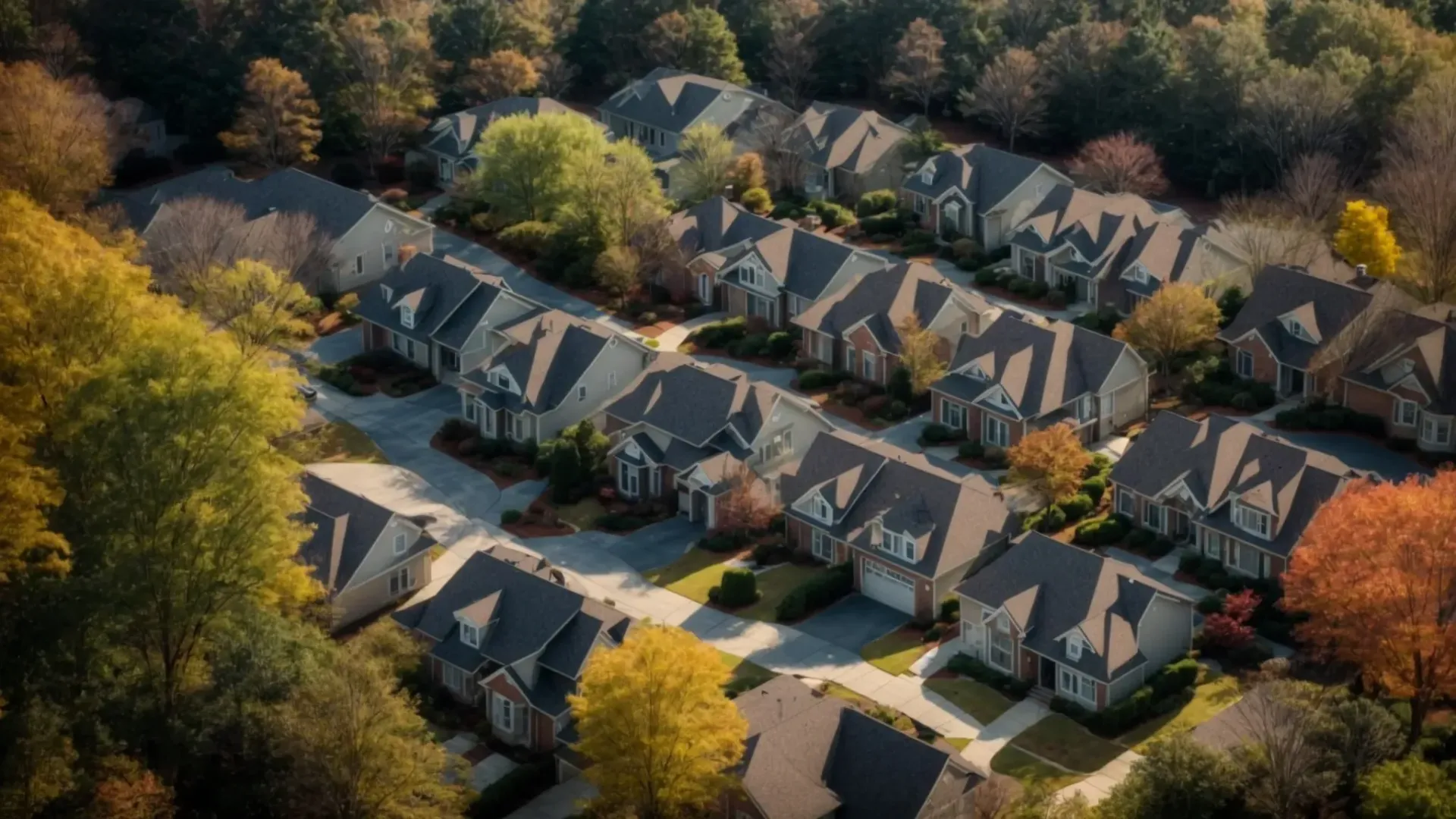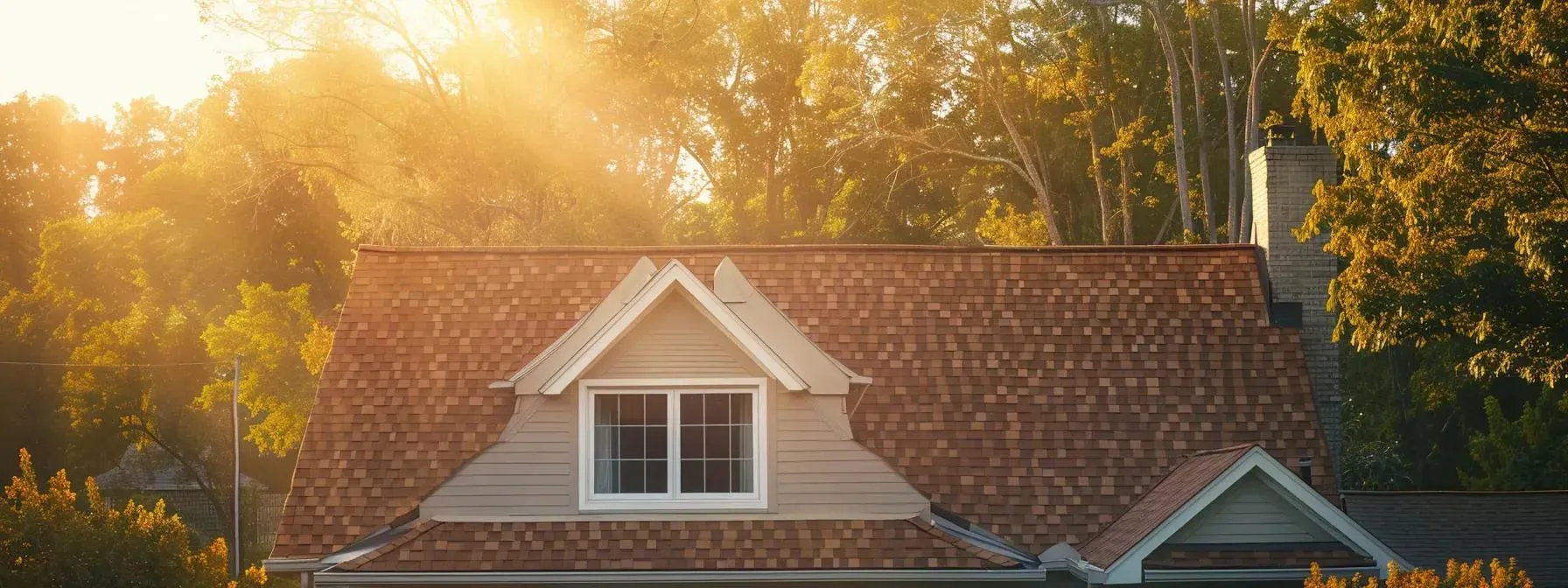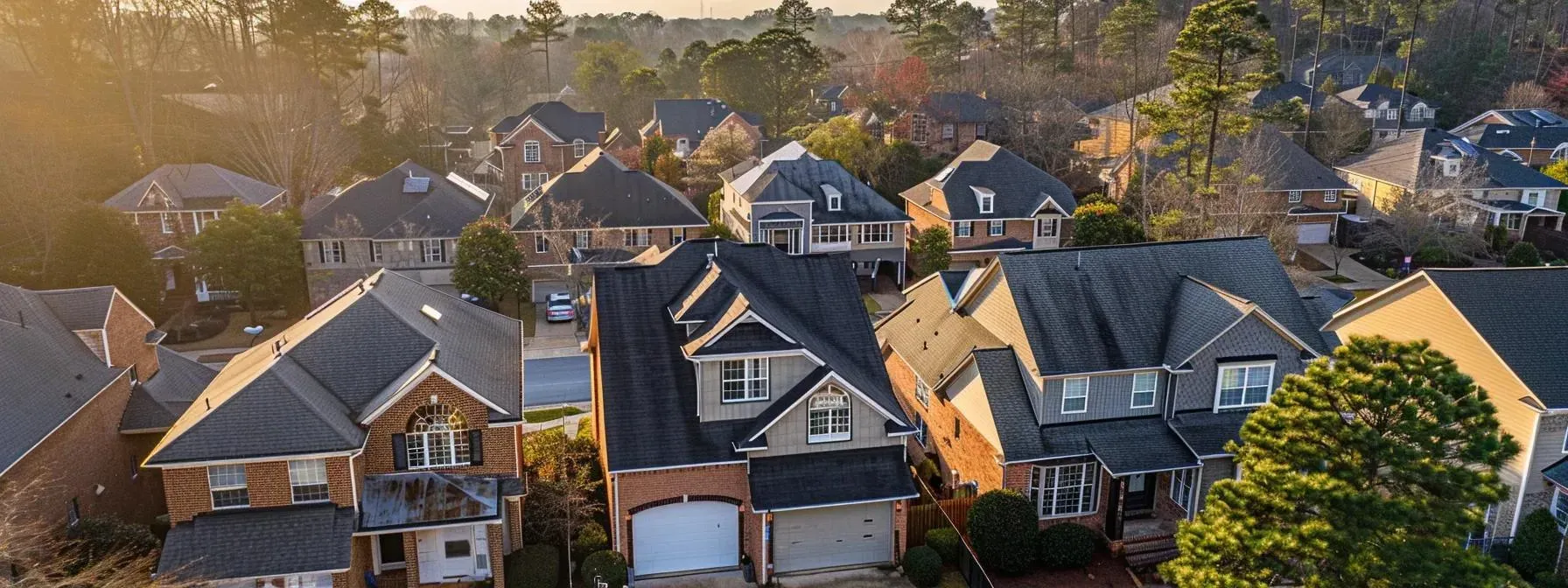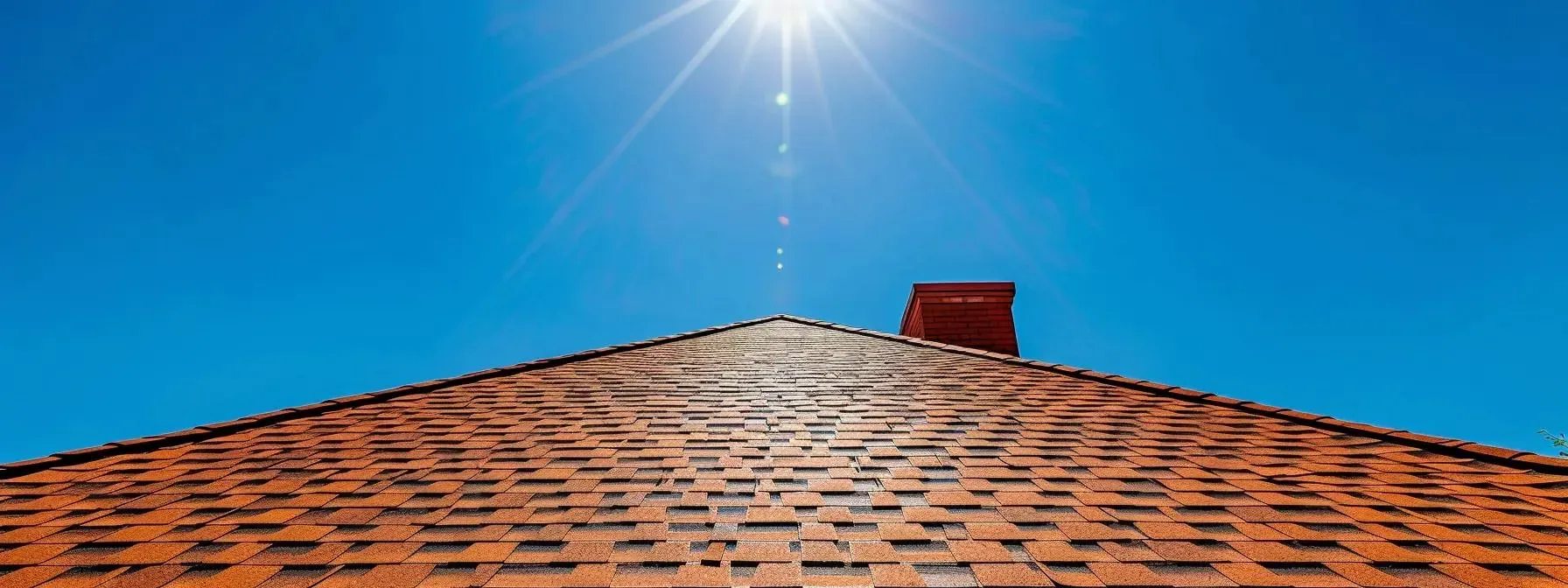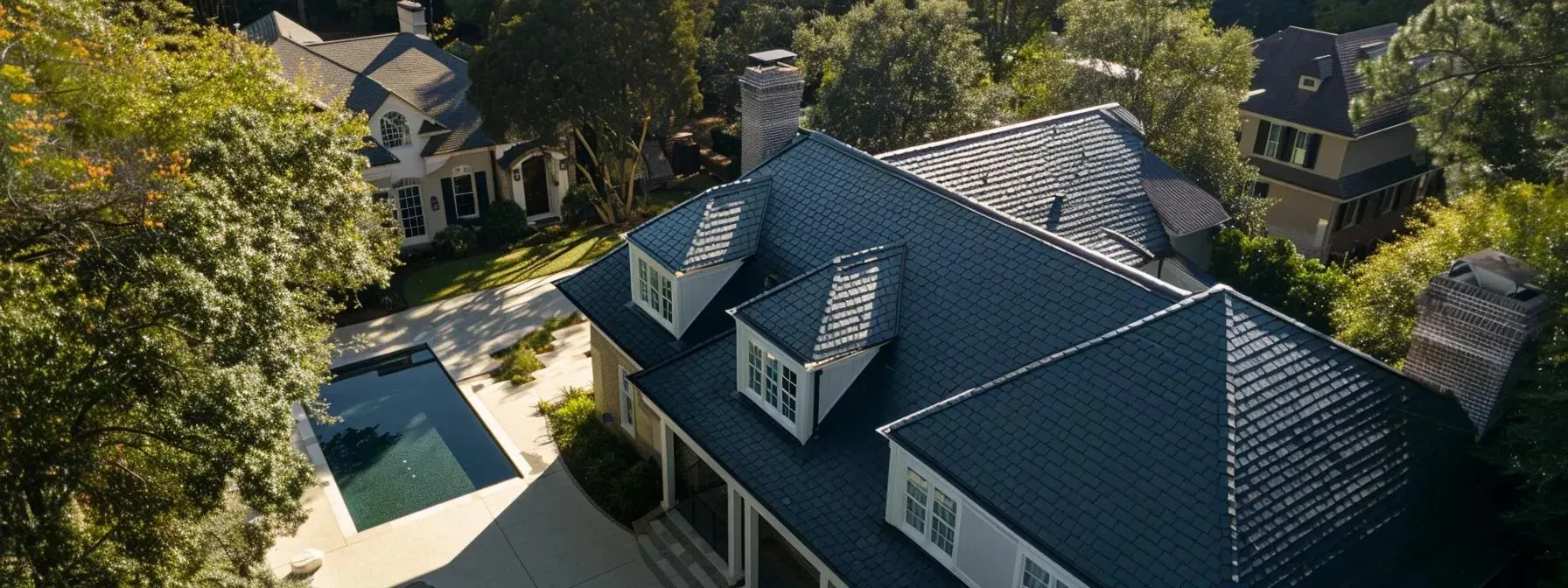The True Cost of a New Roof in Atlanta: Average Estimates and Hidden Fees
Owning a home is the biggest investment some of us will ever make. And to protect that investment, we maintain all the major elements like plumbing, electrical systems, HVAC, and, of course, the roof, which has a lot to do with energy efficiency. Replacing your roof can be a major expense but not without a myriad of benefits that last for decades. The key is to find a reputable local roofing company in Atlanta that provides quality and value.
Are you considering a new roof in Atlanta but worried about the cost? Understanding the average cost of a new roof, hidden fees, and financing options can help you make informed decisions. This article will explore key estimates for roof installation, undisclosed expenses to watch for, and best practices for getting accurate estimates. By reading this content, you will gain insights that can save you money and avoid unexpected costs, helping you tackle the roofing project with confidence.
Understanding the Average Cost of a New Roof in Atlanta
The average cost of a new roof in Atlanta varies based on several factors. Key components include material types, such as tile and metal, which influence overall pricing. Seasonal fluctuations can affect expenses, and labor costs for roof replacement in Atlanta should also be considered. Finally, frequently asked questions about pricing can clarify common concerns regarding roofing expenses and potential damages that may arise during the process.
Breaking Down the Average Expense by Material Type
Understanding the average expense of a new roof in Atlanta starts with the type of material selected. Options like asphalt shingles often present a budget-friendly choice, while metal and tile roofs can significantly increase the overall cost due to their durability and aesthetic appeal. Homeowners should also consider how these materials perform against challenges such as water damage and leaks, which can arise from severe weather common in the Atlanta area.
Additionally, specific features like chimneys and roof ventilation can influence overall renovation costs. These components may require extra labor and materials, adding to the initial expense. Evaluating these factors helps homeowners make informed decisions about their roofing projects, making sure they receive a quality installation that mitigates potential future issues.
Seasonal Variations in Roofing Costs
Seasonal changes in Atlanta can significantly impact the cost of a new roof replacement. During cooler months, roofing contractors may have lower demand, potentially leading to more competitive pricing and reduced rates on materials like bitumen. Conversely, the peak season in warmer months often sees increased costs due to higher demand and labor availability, which can put pressure on property owners looking to replace their roofs.
Homeowners should also understand how their insurance company may factor in seasonal variations when processing claims for roof damage. If severe weather occurs, such as storms causing damage to gable roofs, claims may face delays or increased scrutiny. Being aware of these factors can help property owners plan their roofing projects more effectively so they receive a fair and timely solution while managing their budgets.
Labor Costs: What to Expect in Atlanta
Labor costs are a significant part of the roof replacement estimate in Atlanta, often varying based on the complexity of the job and the roofing material selected. Customers should expect that skilled labor may come with a higher expense, particularly when addressing roofing issues caused by storms or severe weather. Investing in qualified labor is essential for proper installation and longevity, ultimately minimizing future energy costs associated with inefficiencies in insulation or leaks.
The total expense for labor can also fluctuate depending on the season. During peak months, labor costs may rise due to increased demand for roofing services. Homeowners facing urgent repairs should consider obtaining multiple roof replacement estimates to compare prices and services, helping them engage a reputable contractor who provides both quality workmanship and transparency in pricing. This approach can help mitigate unexpected costs down the line and offers a smoother roofing experience.
FAQs About Pricing for a New Roof
When considering the average cost of a new roof, many homeowners often ask about the factors influencing pricing, including local building codes. Compliance with these codes is essential, as they guide the materials and installation methods permitted in the area. Non-compliance can lead to additional roof repair costs down the line due to potential fines or the need to redo subpar work that doesn’t meet regulations.
Another common concern is the risk associated with wear and tear on roofs over time. Homeowners should take into account how different materials hold up under Atlanta’s weather conditions. Investing in quality materials not only enhances curb appeal but also prolongs the roof's lifespan, reducing the likelihood of costly repairs caused by deterioration or severe weather events.
Key Estimates for Roof Installation in Atlanta
Typical price ranges for roofing materials, such as asphalt shingles, vary based on quality and durability. Estimating costs based on roof size is crucial, as larger roofs naturally require more materials and labor. Homeowners should also be aware of hidden fees that can arise due to severe weather or underlying wear and tear, which can significantly increase the overall expense of replacing a roof.
This overview sets the stage for a deeper look into each of these topics, providing practical insights to help property owners make informed decisions throughout their roofing projects.
Typical Price Ranges for Different Roofing Materials
Typical price ranges for roofing materials vary significantly and play a crucial role in determining the overall cost per square foot for a new roof in Atlanta. For instance, asphalt shingles, a common choice due to their affordability, can range from $3 to $5 per square foot. In contrast, eco-friendly materials like metal and tile can command prices between $7 to $15 per square foot, depending on quality and installation requirements, thereby influencing the property’s market value.
Homeowners should carefully consider both the cost and the potential return on investment when selecting roofing materials. Investing in durable and environmentally friendly options can enhance the roof's longevity and contribute positively to energy efficiency. Understanding these price ranges and the qualities each material offers enables property owners to make informed decisions that align with their budget and maintenance expectations while securing a reliable roofing solution.
Estimating Costs Based on Roof Size
Estimating costs based on roof size is crucial for homeowners in Atlanta seeking roofing replacement. Larger roofs, such as gable roofs, will generally require more materials and labor, affecting the overall expense significantly. Additionally, homeowners should consider the challenges presented by Atlanta's humidity, which can lead to mold growth if the roof lacks proper ventilation and materials. Investing in a high-quality roof can help prevent such issues, ultimately saving money on future repairs.
Moreover, customer service is a key factor when selecting a roofing contractor for the installation. A reputable contractor can provide accurate estimates, taking into account the unique dimensions of the roof and any hidden fees that may arise due to repairs from existing damage or the need for specialized materials. Clear communication about expectations and costs helps homeowners feel more confident in their decisions, resulting in a successful roofing project that addresses both immediate and long-term needs.
Hidden Fees That Can Increase Overall Costs
Hidden fees in roof replacement often catch homeowners by surprise during the installation process. For instance, issues such as wood rot or hail damage may require additional repairs that are not included in the initial estimate, leading to increased overall costs. Homeowners in Atlanta should be vigilant about asking contractors to outline all potential fees to avoid unexpected expenses that could arise after the project begins.
Another common source of hidden fees relates to materials and specific requirements mandated by local building codes. Above-average costs may be incurred if the selected roofing material does not meet the standards, forcing a change that could affect the timeline and budget. Atlanta roofing projects should consider these factors upfront, making sure all aspects, including compliance and quality materials, are thoroughly addressed in the planning stages to facilitate a smooth and cost-effective installation.
Undisclosed Expenses to Watch For
Homeowners in Atlanta should be aware of several undisclosed expenses that may affect the total cost of a new roof. Fees for permits and inspections can sneak into the contract, adding to the overall budget. Furthermore, the costs associated with the removal of old roofing materials and any potential additional repairs discovered during installation can result in unexpected charges. Understanding these factors makes for a smooth transaction with the roofing contractor and accurate financial planning.
Permits and Inspections Hidden in the Cost
When homeowners in Atlanta plan a roof replacement, they often overlook the expenses related to permits and inspections, which can significantly impact the overall roof replacement cost. An Atlanta roofing contractor will typically outline these fees, but they may not always be transparent about the necessity of local permits, which guarantees roofing work complies with building codes. This oversight can lead to unexpected financial obligations if the homeowner is unprepared for these requirements.
In addition to permits, inspections are often required during various stages of the roofing project. These assessments mean the installation meets safety and quality standards, and they can incur additional costs. Homeowners need to factor in both the permit fees and inspection charges when calculating their roof replacement costs, as neglecting to do so may result in a larger-than-expected bill at the end of the project, creating financial strain. Engaging a reputable Atlanta roofing contractor can help mitigate these surprises by providing a clear breakdown of the total expenses involved in the process.
Costs Associated With Removal of Old Roofing
The costs associated with the removal of old roofing are often underestimated by homeowners in Atlanta. This process involves not only removing the existing materials but also addressing any underlying issues related to the roof pitch and decking. If the decking is damaged due to wind or weather exposure, additional repair costs will be incurred, which adds to the overall expense of the roofing project.
Potential Additional Repairs During Installation
During the installation of a new roof in metro Atlanta, homeowners may encounter potential additional repairs that can significantly increase expenses. Issues such as water damage or compromised decking may not be apparent until the old roofing materials are removed. Promptly addressing these hidden problems is essential for the integrity of the new flat roof, but it can lead to unexpected costs that strain the home improvement budget.
Homeowners should also consider how insurance might affect these additional repairs. Home insurance policies may cover certain damages, but understanding the terms and conditions is vital. Communicating upfront with the roofing contractor about any potential risks can help homeowners prepare for hidden fees, facilitating a smoother process from start to finish. Providing an email address for ongoing communication with the contractor allows for timely updates on any necessary repairs that arise during the installation.
Financing Options for a New Roof in Atlanta
Homeowners in Atlanta have various financing options to consider when replacing their roofs. Home equity options provide a way to access funds based on the property’s value, while insurance coverage insights can clarify potential benefits for damages caused by mildew or other issues. Payment plans from local roofing contractors can also ease upfront costs, resulting in safety and quality in the construction process.
Exploring these options helps property owners make informed financial decisions, facilitating a smoother roofing project that addresses both budgetary and aesthetic needs, including considerations for dormers and other structural elements.
Home Equity Options Explained
Home equity options offer homeowners in Atlanta a practical way to finance a new roof, particularly in a region known for its diverse climate challenges. By tapping into the equity built in their properties, homeowners can secure funds necessary for replacing roof tiles or addressing underlying issues without upfront financial strain. Understanding the pricing associated with these financing models can help property owners make informed decisions that align with their budget and long-term warranty considerations.
For instance, many lenders provide home equity loans which allow homeowners to borrow a percentage of their home's value. In areas like the valley where weather can be particularly harsh, using home equity for roofing projects means durable materials are chosen to withstand the elements. Additionally, this financing approach can alleviate concerns about unexpected costs that may arise during installation, so homeowners can invest in quality solutions for their roofing needs.
Insurance Coverage Insights
Homeowners in Atlanta should carefully review their insurance policy to understand the coverage available for roof replacements. Many insurance policies include provisions for damages caused by severe weather, which can help mitigate out-of-pocket expenses. Making sure the chosen roofing materials exhibit durability against local climate challenges is key, as some insurance providers may favor high-quality materials that enhance building insulation and resilience.
It is important for homeowners to communicate with their insurance agents about specific terms related to their coverage. Asking clarifying questions can reveal whether the insurance policy includes provisions for additional unexpected repairs that may occur during installation. This proactive approach can help in planning financial contributions effectively and securing reliable solutions for their roofing needs.
Payment Plan Choices From Local Contractors
Local contractors in Atlanta often provide flexible payment plans for residential roofing projects, allowing homeowners to manage costs effectively. These arrangements might include installment plans that spread the payment over several months, making it easier for property owners to handle expenses without immediate financial strain. By discussing payment options upfront, homeowners can better manage the costs associated with roof inspections or general contractor services, especially when considering repairs due to depreciation or potential damages.
Understanding the payment plans available can help homeowners make informed decisions about their roofing investments. Many contractors may require a down payment, followed by structured payments contingent upon project milestones or inspections. This approach not only clarifies the costs involved but also promotes a trusting relationship between homeowners and contractors, so expectations are met throughout the roofing process.
Comparing Costs of Popular Roofing Materials
Asphalt shingles provide a budget-friendly roofing option, offering a total estimate overview that highlights their cost-effectiveness. Metal roofing presents higher initial expenses but delivers long-term value and energy efficiency through enhanced ventilation. Tile and slate roofing require consideration of manufacturing details and durability, making sure homeowners understand all aspects influencing roofing insurance and maintenance costs.
Asphalt Shingles: Total Estimate Overview
Asphalt shingles remain one of the most popular roofing choices for homeowners in Atlanta due to their affordability and ease of installation. Brands like Owens Corning offer a range of options that typically cost between $3 to $5 per square foot for quality materials, making them a budget-conscious choice for those considering an Atlanta roof replacement. Homeowners should also factor in the longevity and resistance of asphalt shingles to local weather conditions when making their decisions.
While the initial cost of asphalt shingles is appealing, homeowners must be aware of potential hidden fees that may arise during the installation process. Issues such as the need for underlayment or the removal of old shingles can add unexpected costs, which can ultimately affect the overall estimate of an Atlanta roof replacement. By discussing these potential expenses with a reputable contractor early in the planning process, homeowners can better prepare for a smooth installation experience.
Metal Roofing Costs and Long-Term Value
Metal roofing presents a higher upfront cost, typically ranging from $7 to $15 per square foot in Atlanta. However, the investment pays off over time due to its superior durability and energy efficiency. Homeowners benefit from reduced heating and cooling costs, making metal roofs an appealing option for those looking to enhance their property's long-term value.
Moreover, metal roofs can withstand severe weather conditions, which is particularly important in the humid climate of Atlanta. With an expected lifespan of 40 to 70 years, they require fewer replacements, thus lowering the long-term expenses associated with maintenance and repairs. This longevity, combined with increasing property values in the area, positions metal roofing as a sound investment for homeowners seeking durability and a strong return on their roofing investment.
Tile and Slate Roofing: What to Consider
Tile and slate roofing materials provide exceptional durability and aesthetic appeal for homeowners in Atlanta. Though they typically have higher upfront costs, ranging from $10 to $20 per square foot, their longevity and resilience against severe weather events make them a wise investment. Property owners should consider the benefits of these materials, such as their ability to enhance energy efficiency and potentially increase the property's market value.
Installation costs for tile and slate roofs can also be influenced by local building codes and the complexity of the roofing project. Homeowners may encounter additional expenses related to specialized labor and structural reinforcements required for these heavier materials. Understanding these factors is essential, as it provides transparency when engaging with roofing contractors and helps prevent unexpected financial burdens during the renovation process.
Best Practices for Getting Accurate Roof Estimates
Choosing the right roofing contractor is essential for obtaining accurate estimates for a new roof in Atlanta. Homeowners should include specific details in their estimate requests, such as material preferences and project timelines. Gathering multiple quotes from different contractors helps encourage competitive pricing and better decision-making, allowing homeowners to clearly understand the potential costs and avoid hidden fees.
How to Choose the Right Roofing Contractor
Choosing the right roofing contractor in Atlanta requires careful consideration of several key factors. Homeowners should seek licensed and insured contractors who have a proven track record of quality work. Checking online reviews and asking for referrals from friends or family can provide valuable insights, helping homeowners identify trustworthy professionals who are familiar with local building codes and materials.
Additionally, clear communication with potential contractors is vital for obtaining accurate estimates and avoiding hidden fees. Homeowners should discuss specific project details, including timelines and material preferences, during the initial consultation. This proactive approach not only clarifies expectations but also helps in building a solid working relationship, which is essential for a successful roofing project.
What to Include in Your Estimate Request
When requesting estimates for a new roof in Atlanta, homeowners should be specific about their project requirements. Clear details, such as the type of roofing materials desired, the size of the property, and any unique features like skylights or ventilation systems, help contractors provide more accurate quotes. Including information about the urgency of the project and any previous roofing issues can further fine-tune the estimates so all potential costs are accounted for upfront.
Homeowners should also ask contractors about their approach to the roofing project, including potential hidden fees associated with inspections or permits. This proactive communication not only clarifies expectations but also fosters a trusting relationship with the contractor. By integrating these key elements into the estimate request, property owners can better understand the true cost of their roofing project, avoiding surprises down the line while knowing their specific needs are met effectively.
The Importance of Multiple Quotes
Obtaining multiple quotes for a new roof in Atlanta is crucial for homeowners aiming to make informed decisions. Gathering estimates from various roofing contractors allows property owners to compare prices, services, and expertise, helping them secure the best value for their investment. This approach not only enables competitive pricing but also offers insights into the specific details of each contractor's proposal, helping to identify potential hidden fees associated with the roofing project.
Moreover, multiple quotes provide homeowners with a clearer understanding of the average costs involved in roof installation. By reviewing different proposals, property owners can discern which contractors offer transparent pricing and quality materials, addressing concerns about durability and long-term maintenance. Engaging in this proactive strategy leads to educated choices, ultimately enhancing the success of the roofing project and resulting in satisfaction with the final outcome.
